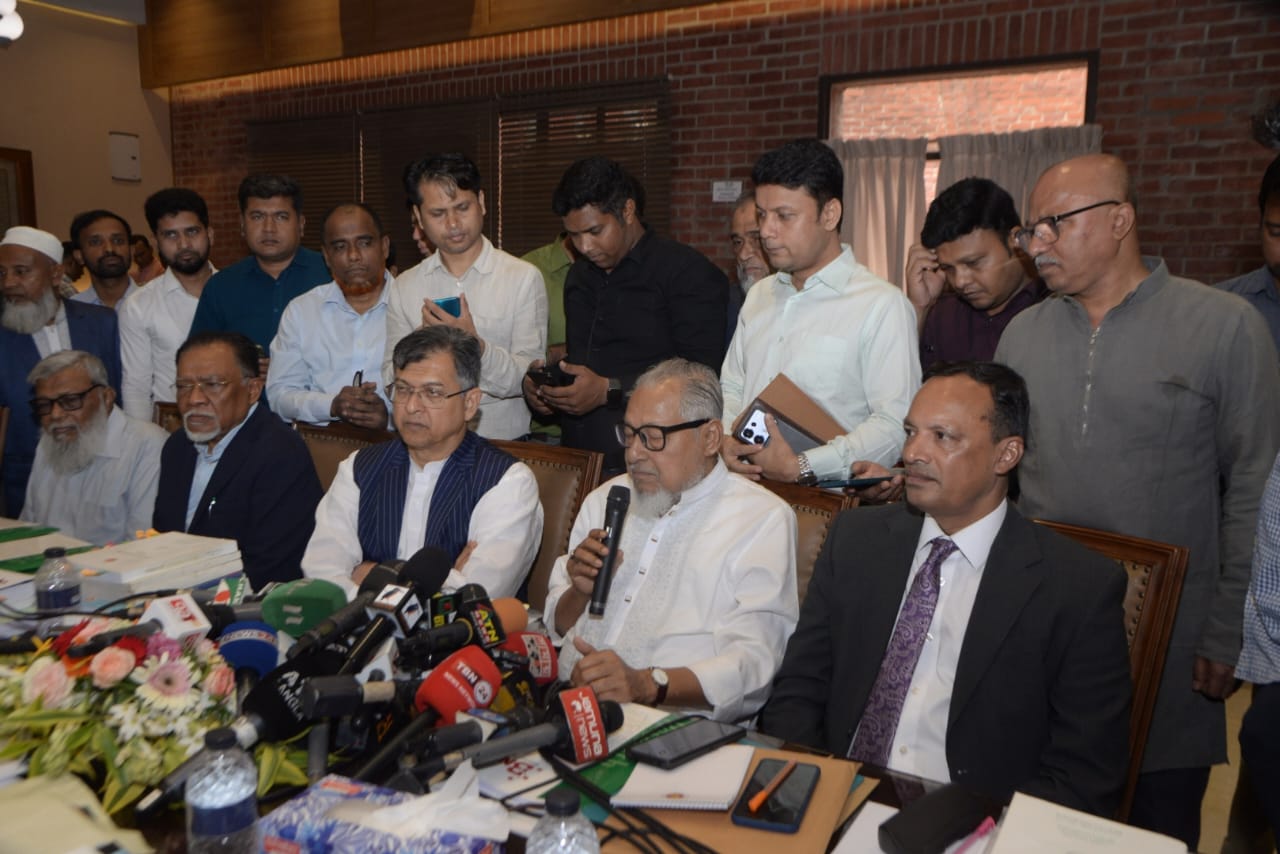As Bangladesh inches closer to national elections, efforts to forge a July Charter for national consensus have hit a roadblock, with the main opposition party, the Bangladesh Nationalist Party (BNP), refusing to endorse the initiative. Instead, the BNP insists on sticking to its previously announced “31-Point Reform Agenda” — a comprehensive framework developed through consultations with various political parties and civil society actors.
At a Thursday meeting held at the LD Hall of the National Parliament, BNP’s senior leader Nazrul Islam Khan made it clear that while the party supports dialogue and reform, it will not deviate from its own roadmap. “We already have our version of a reform charter—the 31 points—which reflect input from a broad spectrum of political voices,” Khan said.
While BNP has expressed conditional openness to aligning with elements of the July Charter that match its own reforms, its firm stance on the timing of elections has added complexity. The party has categorically stated it will not accept a general election beyond December 2025, citing two main concerns: extending the timeline could undermine the credibility of the interim administration, and allow further politicization of state machinery.
Political analysts suggest the BNP’s strategy is now twofold: to remain firm on key demands while quietly working to rebuild alliances, including with Islamist party Jamaat-e-Islami. Despite an official rift following the war crimes tribunal, Jamaat’s grassroots networks remain influential in northern and southwestern regions of the country. Sources say BNP is attempting to secure Jamaat’s silent support in pursuit of a broader consensus.
However, this balancing act comes with its own set of challenges. Jamaat itself is reportedly hesitant to join a reform-based consensus unless it includes key demands—such as the reformation of the Election Commission, repeal of the Digital Security Act, and guarantees for religious political freedom—some of which are opposed by secular parties.
A member of the National Consensus Commission, speaking on condition of anonymity, noted: “BNP is under pressure on two fronts—being flexible on reform while retaining the support of conservative allies. It’s a tightrope walk.”
This raises broader questions: Which of the BNP’s 31 reforms can serve as common ground for all parties? And if BNP insists on a December election, how feasible is it to build political consensus without compromise?
Professor Ali Riaz, vice-chair of the National Consensus Commission, acknowledged the dilemma but stressed the importance of engagement: “BNP has presented a clear position. We welcome differing opinions in this dialogue. The party’s historic role in democratic struggle is recognized by the public and deserves attention.”
With time running out, the stakes are rising—not just for BNP, but for the credibility of Bangladesh’s democratic process at home and abroad.


